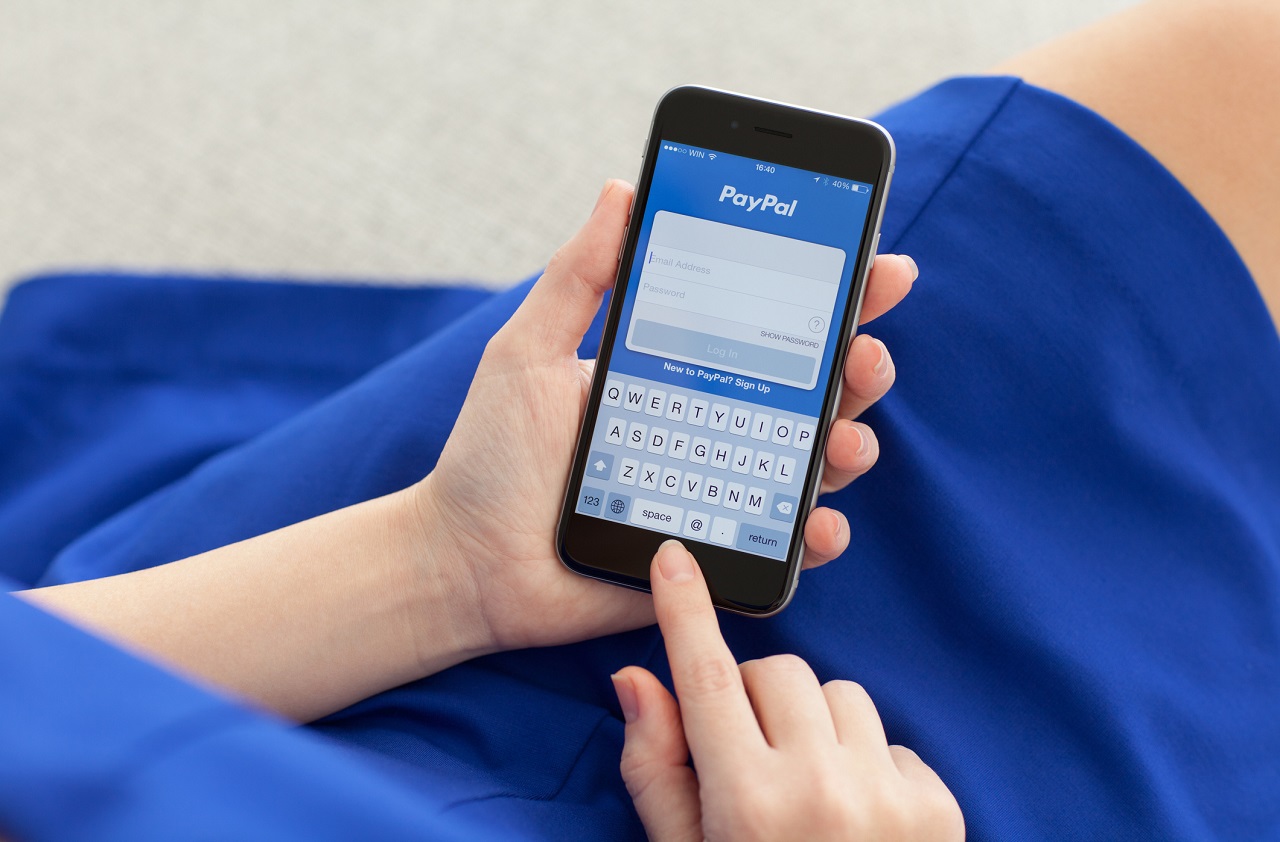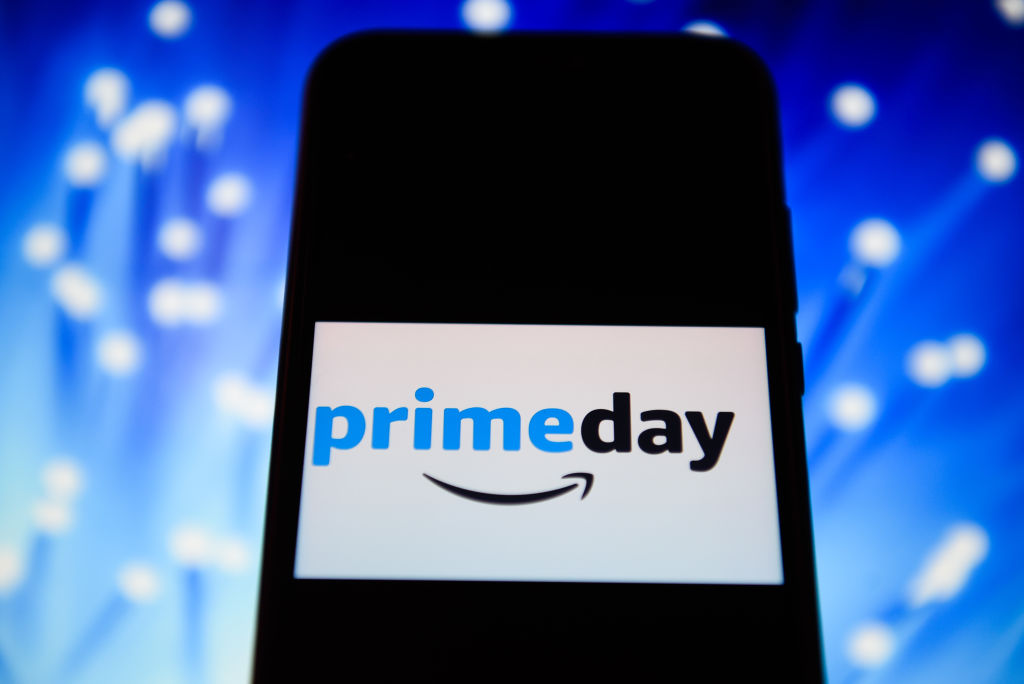The Risks of Paying Peer to Peer
Fraudsters are using payment apps such as Paypal and Zelle to trick you out of your money.


Profit and prosper with the best of Kiplinger's advice on investing, taxes, retirement, personal finance and much more. Delivered daily. Enter your email in the box and click Sign Me Up.
You are now subscribed
Your newsletter sign-up was successful
Want to add more newsletters?

Delivered daily
Kiplinger Today
Profit and prosper with the best of Kiplinger's advice on investing, taxes, retirement, personal finance and much more delivered daily. Smart money moves start here.

Sent five days a week
Kiplinger A Step Ahead
Get practical help to make better financial decisions in your everyday life, from spending to savings on top deals.

Delivered daily
Kiplinger Closing Bell
Get today's biggest financial and investing headlines delivered to your inbox every day the U.S. stock market is open.

Sent twice a week
Kiplinger Adviser Intel
Financial pros across the country share best practices and fresh tactics to preserve and grow your wealth.

Delivered weekly
Kiplinger Tax Tips
Trim your federal and state tax bills with practical tax-planning and tax-cutting strategies.

Sent twice a week
Kiplinger Retirement Tips
Your twice-a-week guide to planning and enjoying a financially secure and richly rewarding retirement

Sent bimonthly.
Kiplinger Adviser Angle
Insights for advisers, wealth managers and other financial professionals.

Sent twice a week
Kiplinger Investing Weekly
Your twice-a-week roundup of promising stocks, funds, companies and industries you should consider, ones you should avoid, and why.

Sent weekly for six weeks
Kiplinger Invest for Retirement
Your step-by-step six-part series on how to invest for retirement, from devising a successful strategy to exactly which investments to choose.
Finding a good hairstylist is hard, but finding a traveling hairstylist is even harder. As a splurge, I looked for someone who would come to my apartment to spend four or more hours braiding my hair. Thanks to social media, I succeeded.
My text exchanges with the stylist went smoothly. I described what I wanted, and she told me to send a nonrefundable $150 deposit–half of the cost–via PayPal's peer-to peer (P2P) payment function. The alarm bells didn't go off until I couldn't reach her on the day of the appointment. Was this stranger going to show up as promised, or did I just lose $150?
Fortunately, she did show up that day. I hadn't been able to reach her because her cell phone battery had died. In hindsight, I realized she could have catfished me–created an elaborate fake profile and passed off someone else's work as her own–and then not shown up. I would have been scammed, with no recourse from PayPal.
From just $107.88 $24.99 for Kiplinger Personal Finance
Become a smarter, better informed investor. Subscribe from just $107.88 $24.99, plus get up to 4 Special Issues

Sign up for Kiplinger’s Free Newsletters
Profit and prosper with the best of expert advice on investing, taxes, retirement, personal finance and more - straight to your e-mail.
Profit and prosper with the best of expert advice - straight to your e-mail.
Growth of P2P. Members of my generation are big users of P2P apps, such as Cash, PayPal, Venmo and Zelle. The apps are fast, and often all it takes to transfer money to another's bank account is an e-mail address or phone number. In fact, 62% of millennials used these apps to send or receive money in 2017, reports Bank of America.
But as the use of P2P apps grows, so do complaints about scams. The Federal Trade Commission added online payment systems to its complaint database last year, and I've noticed more scam complaints posted on social media sites. The schemes are similar: Someone pretends to be selling, say, concert tickets, dupes victims into sending money and then disappears.
As consumers, we have come to expect some form of protection when we link our bank accounts or debit cards to these apps. But when you're using electronic forms of payment to make a purchase from another individual–instead of a traditional merchant–the rules are different and there's less protection against fraud, says Sarah Grotta, of Mercator Advisory Group. If anyone ever took the time to read the fine print, they'd know this. For instance, according to PayPal's purchase protection guidelines, when you send money through its friends-and-family P2P system, you're not covered for any losses because you authorized the transaction. If someone hacks into your PayPal account to make an unauthorized transaction, however, you're protected.
Venmo, owned by PayPal, states in its user agreement that personal accounts are meant to be used only between family and friends. Its definition of what's considered an unauthorized transaction is similar to PayPal's. The same goes for Cash.
Zelle, another P2P app, looks like a safer bet because it's backed by big banks, such as Chase, Citi and Wells Fargo. But banks that have integrated Zelle into their systems stress that the app is for sending money to someone you know. If you do business with strangers and get scammed, you're likely out of luck.
Grotta's advice is never to send money to people you don't know. If you've been hacked and money has been transferred from your account without your consent, contact your bank and the P2P service by e-mail or phone as soon as possible. The P2P service will investigate your claim and determine if a full refund is due.
Ultimately, treat your P2P payments as you would cash. If you wouldn't feel comfortable giving a stranger cash before receiving a product or service, don't send that person money by Venmo, either. Once the money is gone, it's gone. I'll be sure not to take the flight risk with my money again.
Profit and prosper with the best of Kiplinger's advice on investing, taxes, retirement, personal finance and much more. Delivered daily. Enter your email in the box and click Sign Me Up.

Rivan joined Kiplinger on Leap Day 2016 as a reporter for Kiplinger's Personal Finance magazine. A Michigan native, she graduated from the University of Michigan in 2014 and from there freelanced as a local copy editor and proofreader, and served as a research assistant to a local Detroit journalist. Her work has been featured in the Ann Arbor Observer and Sage Business Researcher. She is currently assistant editor, personal finance at The Washington Post.
-
 Ask the Tax Editor: Federal Income Tax Deductions
Ask the Tax Editor: Federal Income Tax DeductionsAsk the Editor In this week's Ask the Editor Q&A, Joy Taylor answers questions on federal income tax deductions
-
 States With No-Fault Car Insurance Laws (and How No-Fault Car Insurance Works)
States With No-Fault Car Insurance Laws (and How No-Fault Car Insurance Works)A breakdown of the confusing rules around no-fault car insurance in every state where it exists.
-
 7 Frugal Habits to Keep Even When You're Rich
7 Frugal Habits to Keep Even When You're RichSome frugal habits are worth it, no matter what tax bracket you're in.
-
 21 Last-Minute Gifts for Grandparents Day 2025 to Give Right Now
21 Last-Minute Gifts for Grandparents Day 2025 to Give Right NowHoliday Tips Last-minute gifting is never easy. But here are some ideas to celebrate Grandparents Day.
-
 Texas Sales Tax-Free Weekend 2025
Texas Sales Tax-Free Weekend 2025Tax Holiday Here's what you needed to know about the Texas sales tax holiday.
-
 Alabama Tax-Free Weekend 2025
Alabama Tax-Free Weekend 2025Tax Holiday Here’s everything you need to know about the 2025 back-to-school Alabama sales tax holiday.
-
 The Sweet 23: States Where Twix and Kit Kat Avoid the ‘Candy Tax’
The Sweet 23: States Where Twix and Kit Kat Avoid the ‘Candy Tax’State Taxes There’s something spooky this Halloween, and it’s not just the ghouls. Find out if your state’s sales tax takes a bite out of sweet savings.
-
 Florida Back-to-School Tax-Free Holiday 2025
Florida Back-to-School Tax-Free Holiday 2025Sales Taxes The new tax-free holiday in Florida brought month-long savings on computers, clothing and other school supplies.
-
 Five Reasons You Shouldn't Shop Amazon's Prime Big Deal Days
Five Reasons You Shouldn't Shop Amazon's Prime Big Deal DaysSmart Buying Are Amazon Prime Big Deal Days still a good deal? We'll break it down.
-
 When Renting Is Smarter Than Buying
When Renting Is Smarter Than Buyingreal estate There are some situations when renting is smarter than buying. You're not necessarily throwing your money away when you rent.
-
 Etsy, eBay, PayPal Want IRS 1099-K Relief for Online Sellers
Etsy, eBay, PayPal Want IRS 1099-K Relief for Online SellersIncome Tax Companies like eBay, Etsy, and PayPal want Congress to raise the $600 reporting threshold for IRS Form 1099-K to give relief to millions of sellers who use their sites.